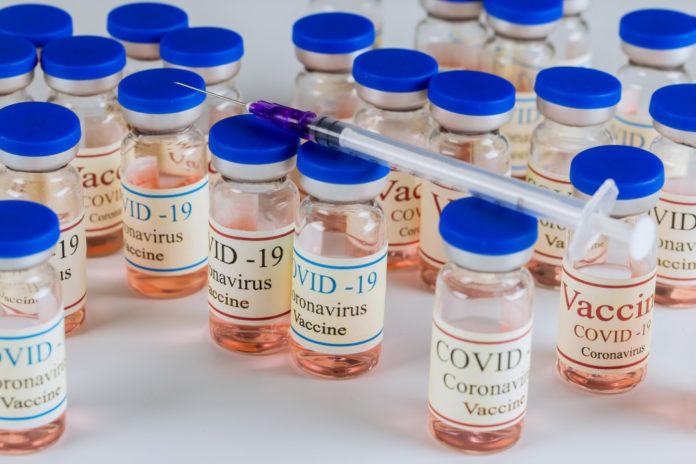Digitalisation could demolish medical barriers altogether, as it assists in tracking disease outbreaks faster and smarter. The application of technological tools to the domain of epidemiology as well as vaccine dissemination is in the spotlight as countries around the globe race against the spread of COVID-19 and grapple with its economic consequences. Can technology help assure seamless delivery of COVID-19 vaccinations, from production, shipment and, especially, to last-mile distribution?
Researchers, technologists and policymakers have attempted to address this, and public-private partnerships — along with an army of citizen volunteers — have ballooned in the effort to ensure that vaccine distribution is on schedule and keeps up with production.
The cloud and data distribution
Beginning with the pharmaceutical companies, efficient and accurate distribution of vaccine-related data has proved crucial to expediting vaccinations across the globe.
AstraZeneca, for example, has leveraged its hybrid multi-cloud network, AZ Cloud, to seamlessly share data both internally, and with stakeholders across the globe.
According to Scott Hunter, Director of Global Infrastructure Services at AstraZeneca, the company uses four major cloud platforms: AWS, Azure, Google and Alibaba, along with private cloud and on-premises data centres. It then employs NetApp’s Data Fabric to connect these, so that data can easily be shared between platforms and with external parties. In this way, data from the vaccine trials and production, as well as reactions of patients, can be shared quickly.
Similarly, a recent Microsoft blog post highlighted how technology plays an essential role in accelerating the distribution of the vaccine and evaluating its efficacy, with the use of global real-world data.
“The Microsoft Vaccination Management platform includes a growing collection of vaccination specific solutions from Microsoft and our partner ecosystem. They are designed to enable and extend an organisation’s vaccination management capabilities and create end-to-end experiences for citizens, front-line vaccine administrators, and healthcare providers”, the statement said.
It further mentioned, “The National Covid Vaccination Registration Platform for the 45 million eligible citizens in the U.K. is built via an Azure web form and hosted on Azure. As part of the overall service, System C, hosted and managed the National Immunisation Management System (NIMS) on Azure, also integrating with Primary Care and National Health Systems (NHS) nationally, using Power BI for reporting.”
The many uses of AI
For some time now, AI has been used for DNA sequencing, assisting researchers and clinicians in conducting tests in genetic matching and immunity response. But AI today is also being used in vaccine logistics and front-line vaccinations.
Google Cloud, for example, is helping healthcare organisations, retail pharmacies, logistics companies, and public sector institutions make use of innovative technologies to speed up the delivery of vaccines. In a blog, Google said, “Logistics companies are using our AI to optimise trucking operations by adapting to traffic or inclement weather, and detect temperature fluctuations during transport. Once vaccines reach their destination, our tools help facilitate pre-screening, scheduling, and follow up. And our Intelligent Vaccine Impact Platform is helping states like New York and North Carolina manage distribution and forecast where vaccines, personal protective equipment, and hospital staffing will be most needed.”
AI is also helping overstretched frontline workers by providing patient support. Microsoft’s Azure Health Bot, for instance, has been enhanced to provide vaccination support, where patients can check eligibility for COVID-19 vaccines, and get answers to vaccine-related questions.
According to Microsoft, “Trinity Health, one of the largest healthcare systems in the nation, caring for more than 30 million people across 22 states, has effectively utilised AI chatbots to make it easier for patients to quickly connect to the care they need. From answering questions to routing patients to the appropriate avenue of care or service, the technology provided an improved experience”.
Enhancing digital workflows
ServiceNow, a digital workflow company, has now provided Vaccine Administration Management (VAM) offerings on ServiceNow’s Customer Service Management (CSM) platform. This has been developed to improve service operations by creating a vaccine command centre that will help in overcoming issues with manual legacy systems faster.
Wee Luen Chia, Managing Director and Area Vice President, Asia at ServiceNow explains, “ServiceNow has taken the basics of improving service operations and customer engagement and adapted these offerings to meet one of the most pressing worldwide workflow challenges of our time – turning vaccines into vaccinations in a timely and effective manner, globally.”
He further said that their solution helps in patient engagement, through improved back-end information and inventory systems that enable organisations to easily schedule appointments, send reminders, notify patients when more COVID-19 vaccines are available, and communicate when a new population is being prioritised for the vaccination.
ServiceNow’s services have been used extensively in the State of North Carolina Department of Health and Human Services (NCDHHS) for its “command centre” which allows more than 80,000 healthcare providers, clinicians to administer the vaccine. It also supports NCDHHS staff in accessing the latest information related to state vaccine requirements and to get their vaccine-related questions answered.
The tech industry rallies
In addition to the critical role that technology is playing in vaccine distribution, tech companies are also contributing resources towards making sure as many people are vaccinated as possible.
Google, for example, will contribute resources worth $150 million to promote vaccine education and provide valuable information regarding the vaccine, $100m of which will be in the form of ad grants for the CDC Foundation, WHO, and other nonprofits across the globe.
Aruba, meanwhile, is donating thousands of secure connectivity kits — worth $50 million — for “immediate provisioning of pop-up clinics, testing sites and temporary hospital facilities” globally, according to their blog.
Aruba has also created the Airheads Volunteer Corps which is “an opt-in only registry of skilled network engineers interested in doing what they can to assist our medical community with their networking needs. In creating this registry, Aruba aims to connect those in need of IT skills, with those who have the ability to help.”
Digital vaccine passports in the post-COVID world
The travel scenario is likely to undergo a host of changes, once a major chunk of the population is vaccinated. One significant change might be the introduction of digital passports, with countries like Australia, Denmark and Sweden adopting this concept to ensure the convenience of the travellers.
In Singapore, for example, Parkway Shenton will be the first healthcare provider in Singapore to issue verifiable digital travel credentials to travellers. By the end of October 2020, at least 23 of Parkway Shenton’s clinics began the issuance of digital COVID-19 test results. Discussions were underway to integrate Accredify’s technology into Parkway Pantai’s healthcare networks in the overseas markets where it operates.
Digital COVID-19 swab results are able to enable a smoother travel process for outbound travellers, immigration authorities, and airlines with its interoperability and ease of authentication.
In addition, digital travel credentials such as Parkway’s verifiable COVID-19 swab result are based on frameworks which Accredify co-created with GovTech Singapore, and have datafields that are aligned to physical result certificates currently issued by healthcare providers.
When asked about the data security of digital passports, Ajay Biyani, ASEAN Managing Director at ForgeRock, said “Privacy must continue to be a top priority for businesses and governments as they work on services like digital passports. Alongside having secure systems to store this information, the success of this will be hinged around transparency and communicating exactly how personal information is used. Besides privacy, authenticating the credentials in these passports will be crucial. Blockchain-based verification presents one means of achieving this, and when utilised in conjunction with biometric verification, it will ensure authenticity is prioritised for the credentials of each digital passport.”
















